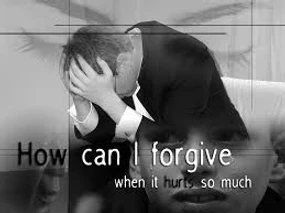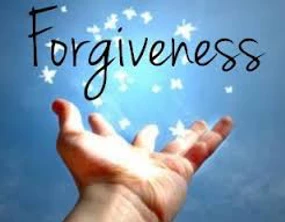
There is nothing heavier to carry than a grudge or unforgiveness
41 Then Jesus told him this story: “A man loaned money to two people-500 pieces of silver to one and 50 pieces to the other. 42 But neither of them could repay him, so he kindly forgave them both, canceling their debts. Who do you suppose loved him more after that?” 43 Simon answered, “I suppose the one for whom he canceled the larger debt.” “That’s right,” Jesus said. 44 Then he turned to the woman and said to Simon, “Look at this woman kneeling here. When I entered your home, you didn’t offer me water to wash the dust from my feet, but she has washed them with her tears and wiped them with her hair. 45 You didn’t greet me with a kiss, but from the time I first came in, she has not stopped kissing my feet. 46 You neglected the courtesy of olive oil to anoint my head, but she has anointed my feet with rare perfume. 47 “I tell you, her sins-and they are many-have been forgiven, so she has shown me much love. But a person who is forgiven little shows only little love.”48 Then Jesus said to the woman, “Your sins are forgiven.” Luke 7:41-48
It’s certainly not easy to forgive. When someone has wronged you – inflicted pain, humiliated you, abused or exploited you – it’s entirely natural to feel bitterness and resentment. That’s surely what they deserve. Surely what they don’t deserve is your empathy and understanding, and certainly not your charity.
But there are good reasons why forgiveness is worthwhile. A prolonged, constant sense of resentment doesn’t punish the person who wronged you, but only yourself. (Read that again.) Carrying resentment – or a grudge against someone – drains your energy and well-being. It creates tension inside you, makes you rigid, and creates a general sense of negativity that seeps through the whole of your life. In a sense therefore, by carrying resentment, you give your permission to the person to continue hurting you. An act of forgiveness, therefore, means releasing this resentment, freeing yourself from the tension and rigidity that comes from carrying a grudge. “Not forgiving is like drinking rat poison and then waiting for the rat to die.” Anne Lamott, Traveling Mercies: Some Thoughts on Faith
According to the psychologists Enright, Freedman and Rique, The Process Of Forgiveness Has Four Stages, and although they are not linear, all who forgive go through these…sometimes forwards, sometimes backwards:
- 1st, there is the “Uncovering Phase,” where you become aware of the negative effect your resentment is having on your life.
- 2nd, there is the “Decision Phase,” when you decide to let go of your resentment.
- 3rd is the “Work Phase,” where you cultivate your forgiveness on purpose, by accepting what has happened and trying to empathize with the offender.
- 4th, there is the “Deepening Phase,” in which your forgiveness leads to a deeper understanding of yourself and of life in general.
You should NOT, therefore, think that forgiveness means letting the wrongdoer “off the hook.” You should Forgive For Yourself and not for others. If anything, Forgiveness Means Letting Yourself “Off The Hook” – that is, freeing yourself from unnecessary anger and bitterness. As the saying goes, “The best revenge is living well,” rather than the popular bromide, “revenge is a dish best served cold.”
One Final Note
A final reminder. When you have been wronged, it always leaves a scar. I recall a life lesson I wish I had not learned the hard way. As a 12 year old boy with a brand new Christmas set of razor sharp carving tools, I was carving fishing weight molds into a 1″x4″ board. I was intent on melting some lead I found on construction sites in my neighborhood to melt and then pour into these molds. I had a coffee can on the stove and a pair of pliers to hold the can of molten lead.
The crisis came when I carved through the board and gashed my right palm from my wrist to the last joint on my thumb. We called those ignorant tools…could not distinguish from the board and my hand. In those days, mercurochrome and adhesive tape were the remedies of choice. No such thing as stitches or steristrips back then. Amazingly I cut no tendons or nerves…but
It created a terrible scar. It no longer hurts, but the scar remains as a grim reminder not to do that again. Such are the memories of being hurt. Forgiveness allows me to let the hurts go, but the scar reminds me to avoid that hurt again.

Let it go, my friend…let it go. God honors forgiveness and it will do you a world of good.
Portions of this NUGGET are from “The Power Of Forgiveness” by Steve Taylor, PhD (Wake Up World)



